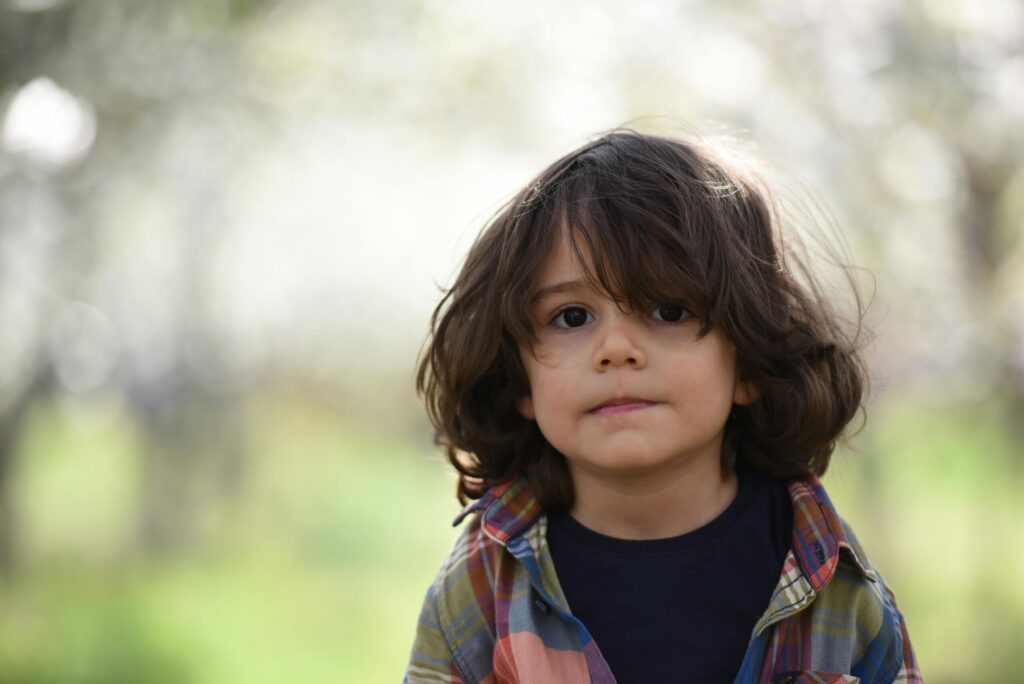When your child sustains a concussion, the road ahead can feel uncertain and overwhelming. As parents, understanding what to expect during the recovery process is crucial for providing the right support and ensuring your child heals properly. While every concussion is unique, knowing the typical timeline, symptoms, and recovery strategies can help you navigate this challenging period with confidence.
In this article, we will explore what to expect after a concussion and how you can set your child up for a full recovery, while making them comfortable along the way!
Understanding the Recovery Timeline
It’s important to remember that every child’s recovery timeline from a concussion is unique. There’s not a one-size-fits-all approach to recovery, and this can vary significantly based on the type of injury, severity, and personal healing ability of the child. The brain needs time to heal after a concussion, much like any other injury in the body. Unlike a broken bone that can be put in a cast, the brain must heal while continuing to function for daily activities. This is why managing symptoms and gradually returning to normal activities is so important for proper recovery.
Recognizing Post-Concussion Symptoms
Physical symptoms due to a concussion are often the most noticeable and can include persistent headaches, dizziness, nausea, fatigue, and increased sensitivity to light or noise. Many children also experience balance problems or feel unsteady on their feet.
Cognitive symptoms can manifest as difficulty concentrating, memory problems, feeling mentally “foggy,” confusion, or taking longer than usual to process information. Your child might struggle with tasks that were previously easy for them or have trouble following multi-step instructions.
Emotional and behavioral changes are equally important to monitor and often the most concerning for parents. Your child may experience increased irritability, sadness, anxiety, or mood swings. Sleep disturbances are common, including difficulty falling asleep, staying asleep, or sleeping more than usual. Some children become more emotional than usual, crying easily or having difficulty managing frustration.
It’s crucial to understand these symptoms and know what to watch for as your child recovers.
The Importance of Rest and Gradual Return
Resting and gradually returning to daily activities is important to ensure your child makes a full recovery. This means limiting homework, video games, texting, social media, reading, and even watching television. The brain is working hard to heal itself, and additional cognitive demands can interfere with this process.
The key is finding the right balance—enough activity to promote healing without overdoing it and causing symptom flare-ups. Encourage your child to listen to their body and communicate with you if something does not feel quite right!
Navigating School and Academic Challenges
Returning to school after a concussion is often the biggest challenge for both children and parents. The school environment is cognitively demanding, with constant stimulation, noise, bright lights, and mental tasks that can quickly overwhelm a healing brain.
Effective school accommodations might include shortened school days, frequent rest breaks, reduced homework assignments, extended time for tests, preferential seating away from distractions, access to a quiet space, and temporary exemption from certain activities like physical education or band practice.
Communication with teachers is essential. Providing clear information about your child’s limitations and recovery timeline helps ensure appropriate support. Think of yourself and your child’s teacher as being teammates in the recovery process as you will rely on each other frequently during this time!
When to Seek Additional Help
While most concussion symptoms are manageable at home, certain warning signs require immediate medical evaluation. These include worsening headaches that don’t respond to over-the-counter pain medication, repeated vomiting, increasing confusion or disorientation, unusual behavior changes, difficulty staying awake, seizures, or loss of consciousness.
Any symptom that is getting progressively worse rather than gradually improving should be evaluated by a healthcare provider. Trust your parental instincts—if something doesn’t seem right, it’s always better to err on the side of caution! You know your child best.
Supporting Your Child’s Emotional Well-Being
After a concussion, children may feel frustrated by their limitations, worried about falling behind academically, anxious about disappointing teammates or coaches, or confused by symptoms they don’t understand.
As a parent, your emotional support is just as important as managing the physical symptoms. Validate your child’s feelings and reassure them that their symptoms are real and will improve with time and proper care. Help them understand that rest isn’t laziness. It’s an essential part of healing that requires discipline and commitment!
Creating a Recovery-Friendly Environment
Your home environment plays a crucial role in your child’s recovery. Consider reducing stimulation by dimming lights, minimizing noise, and creating quiet spaces where your child can rest when symptoms flare up. Maintain consistent sleep schedules and ensure your child is getting adequate nutrition and hydration.
Monitor screen time carefully, as digital devices can exacerbate symptoms like headaches and difficulty concentrating. When your child does use screens, encourage frequent breaks and consider adjusting brightness settings.
The Path Forward
Recovery from a concussion requires patience, understanding, and professional support. Every child’s journey is different, and what works for one may not work for another. The most important thing you can do as a parent is to stay informed, advocate for appropriate accommodations, and maintain open communication with your child’s medical and educational teams.
Remember that full recovery is possible for the vast majority of children with concussions. While the process can be challenging and sometimes lengthy, with proper management and support, your child can return to all the activities they love.
If you’re concerned about your child’s concussion recovery or need guidance on managing symptoms and accommodations, contact Neurobehavioral Associates today. Our specialized team understands the complex challenges of concussion recovery and can provide comprehensive evaluation and support services tailored to your child’s unique needs. We can’t wait to work with you and help your child along the road to recovery!

